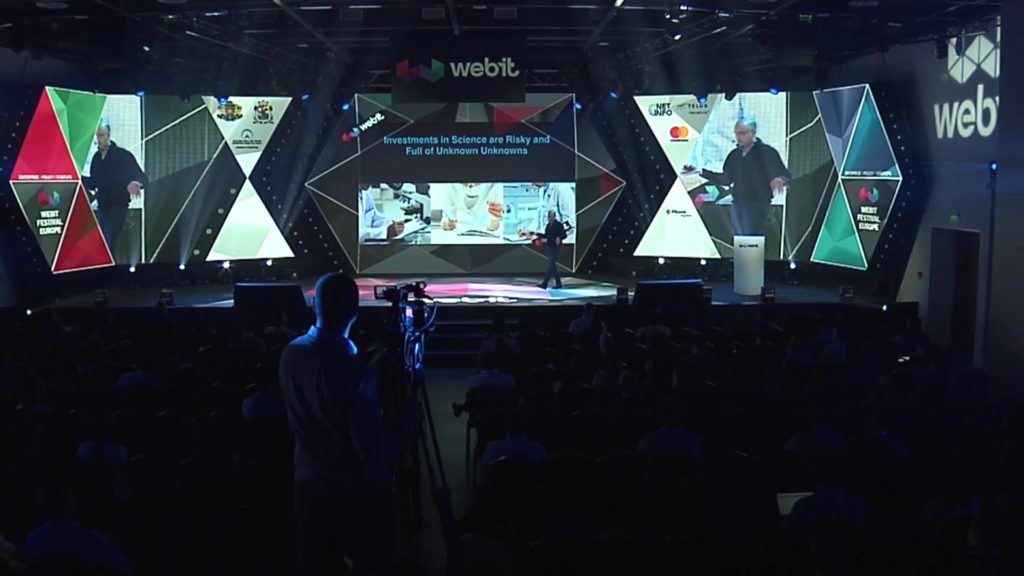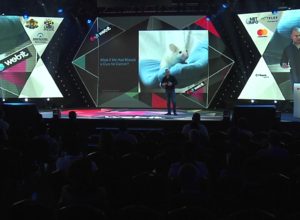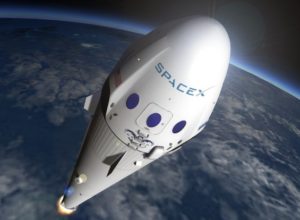Tag: Science
IoT is the key to solving the complex world of science
We often think about innovation and science as a one whole thing. But in the age of connectivity and information sharing most of the science-based organizations remain disconnected from the Cloud computing and its amazing capabilities.
Fortunately this is going to change fast because of the fast development of IoT solutions that are going to cut the research and development costs of companies and help them invest more into amazing science discoveries that will benefit all of us.
During the IoE Summit of Webit.Festival Europe the Founder and CEO of Elemental Machines Sridhar Iyengar took us on a journey through the process of making science in the Digital Age and shared his vision about overcoming the obstacles that science-based companies face today.
Sridhar also founded AgaMatrix, a blood glucose monitoring company that made the world’s first medical device connecting directly to the iPhone and shipped 15+ FDA-cleared medical products, 2B+ biosensors, 6M+ glucose meters, with partnerships with Apple, Sanofi, and Walgreens. He is a holder of over 30 US and international patents.
His presentation showed our guests how the IoT technologies are accelerating science-based work and are helping for the development of new drugs and products that are crucial for our common future.
Iyengar explained that for investing in science-based organizations is often perceived as too risky for venture capitalists and angel investors. The main reason is that such activity requires serious initial capital and is still full of unknowns.
 The Founder & CEO of Elemental Machines Sridhar Iyengar[/caption]
Right now pharmaceutical companies invest millions of dollars in research and development, but very little of this scientific world is actually connected to the Cloud. We already have smart homes and devices, and now is the time to develop smart laboratories and factories that are able to share their results and reap the power of cloud computing.
Maybe the best example of that is the San Francisco company Emerald Cloud Lab (ECL), which Iyengar described as “the Amazon for science”. It has developed a fully robotized laboratory. If you have a science experiment you just have to go to their website and code the process and machines will execute it.
The first cloud connected laboratory in the entire world gets the human error out of the equation and guarantees the same results in every execution of the process. In the long-term offering experimentation as service may revolutionize the science-based businesses by cutting their costs and removing the need to develop their own research in development facilities.
Another example of great innovation is the Bay Area company VIUM, which have a digital mouse lab and removes the actual mice from the drug test process. It collect terabytes of data on mice with dozens of sensors.
The Founder & CEO of Elemental Machines Sridhar Iyengar[/caption]
Right now pharmaceutical companies invest millions of dollars in research and development, but very little of this scientific world is actually connected to the Cloud. We already have smart homes and devices, and now is the time to develop smart laboratories and factories that are able to share their results and reap the power of cloud computing.
Maybe the best example of that is the San Francisco company Emerald Cloud Lab (ECL), which Iyengar described as “the Amazon for science”. It has developed a fully robotized laboratory. If you have a science experiment you just have to go to their website and code the process and machines will execute it.
The first cloud connected laboratory in the entire world gets the human error out of the equation and guarantees the same results in every execution of the process. In the long-term offering experimentation as service may revolutionize the science-based businesses by cutting their costs and removing the need to develop their own research in development facilities.
Another example of great innovation is the Bay Area company VIUM, which have a digital mouse lab and removes the actual mice from the drug test process. It collect terabytes of data on mice with dozens of sensors.
“I’m from Boston and biotech companies here raise $40 million as their first round of investment. And most companies don’t raise that much money through the entire process of their existence. Yet if you are going to develop a drug it is going to cost you tens, or even hundreds of millions of dollars”, the expert explained.People who work in technology fields understand Moore’s Law and the fact that the processing power of computers is growing exponentially. But what most of us don’t realize is that in biotech world it is quite the opposite. Eroom’s Law (Moore’s Law spelled backwards) says that as the years goes on the amount of money needed to produce new a single drug is growing. So for every $1 billion dollars that is invested into making a new drug, you get less and less ROI. One of the main obstacles before making science is the fact that every activity is done in the physical world. This creates hundreds of factors that influence and cause variations in the end result. According to Iyengar doing science is very similar to writing code. Working in a laboratory or a manufacturing facility requires following a procedure and a protocol. Code is nothing more than a set of procedures and steps that machine executes. When things co wrong in code, developers have tools, called debuggers. But in science there are no such tools and the debugging process is much harder.
“It is pretty much like baking a cake. You follow recipe, you bake it and supposedly you should get the cake out. If each of us took home the same recipe for chocolate cake and we came back tomorrow, we will probably have dozens of slightly different kinds of cakes, even that we followed the same procedure. In cooking it is okay, but when you are making a drug, it is no”, he said.In software our operating system may be iOS, Windows, Linux or else. But in science-based industry the operating system is the physical world. Because every time doing experiment, every time you test something on a mouse, every time you do a sequence of a genome, the physical world changes. And if you are trying to do the same things in two different days, you have to make sure that all the conditions are the same. This is the most important thing about science - that everything is based on physical properties. When something goes wrong with your final product there are millions things that could have caused why it could went wrong. And finding that is actually really hard and takes a lot of time and resources. [caption id="attachment_5044" align="aligncenter" width="640"]
 The Founder & CEO of Elemental Machines Sridhar Iyengar[/caption]
Right now pharmaceutical companies invest millions of dollars in research and development, but very little of this scientific world is actually connected to the Cloud. We already have smart homes and devices, and now is the time to develop smart laboratories and factories that are able to share their results and reap the power of cloud computing.
Maybe the best example of that is the San Francisco company Emerald Cloud Lab (ECL), which Iyengar described as “the Amazon for science”. It has developed a fully robotized laboratory. If you have a science experiment you just have to go to their website and code the process and machines will execute it.
The first cloud connected laboratory in the entire world gets the human error out of the equation and guarantees the same results in every execution of the process. In the long-term offering experimentation as service may revolutionize the science-based businesses by cutting their costs and removing the need to develop their own research in development facilities.
Another example of great innovation is the Bay Area company VIUM, which have a digital mouse lab and removes the actual mice from the drug test process. It collect terabytes of data on mice with dozens of sensors.
The Founder & CEO of Elemental Machines Sridhar Iyengar[/caption]
Right now pharmaceutical companies invest millions of dollars in research and development, but very little of this scientific world is actually connected to the Cloud. We already have smart homes and devices, and now is the time to develop smart laboratories and factories that are able to share their results and reap the power of cloud computing.
Maybe the best example of that is the San Francisco company Emerald Cloud Lab (ECL), which Iyengar described as “the Amazon for science”. It has developed a fully robotized laboratory. If you have a science experiment you just have to go to their website and code the process and machines will execute it.
The first cloud connected laboratory in the entire world gets the human error out of the equation and guarantees the same results in every execution of the process. In the long-term offering experimentation as service may revolutionize the science-based businesses by cutting their costs and removing the need to develop their own research in development facilities.
Another example of great innovation is the Bay Area company VIUM, which have a digital mouse lab and removes the actual mice from the drug test process. It collect terabytes of data on mice with dozens of sensors.
“They know how much they sleep, how much they walk around, which direction is their nose pointed, how often they feed. And every single thing is captured, so that when something goes wrong you have a huge database where you can go through and debug what may have happened”, Iyengar said.Тhese are two examples of how IoT, connected devices and cloud computing are being applied to drug discovery and science and research, but there are many more to come. You may watch Sridhar Iyengar’s full lecture here: If you want to keep up with the latest trend in the world of digital economy and technology, then Webit.Festival is the right place for you. Visit our website and book 2 of our Super Earlybird tickets for Webit.Festival Europe 2018 for just €100. Feel the Webit vibe with some of the best photos from this year’s event! [easingslider id="4954"]
Private sector is driving the new age of space exploration
History of the human race is full of stories of amazing leaps, from migrating out of Africa to landing our spacecrafts on other planets and even asteroids. Nearly 50 years after first human steps on the Moon the space industry is completely different, than it was in the 20th century.
Contrary to perceptions, space industry is extremely traditional because of the high costs and need of minimal risk. But now private companies are beginning to take the initiative and to change our ideas about space as a place, reserved for government agencies.
There was a time when NASA and Roskosmos were the two main engines of our dreams for space exploration. But over the last 15 years that has changed with tens of space companies entering the market with serious plans for building rockets and colonizing new world.
Today almost everyone is aware of Virgin Galactic, SpaceX and Blue Origin, mostly due to the popularity of their celebrity entrepreneur owners. If their efforts for creating a reusable booster succeeds, this can lower the costs for space launch with as much as 60%.
And this is not even the whole picture. Hundreds of small startups have popped up for the new space race. Companies like Astrobotics are charging $1.2 million per kilo to take your stuff to the moon, while experts in Saber Aeronautics are using video game tech to help you create missions and operate satellites with minimum training.
During last year’s Webit.Festival in Sofia the project coordinator and engineer at European Space Agency (ESA) Lluc Diaz explained that because of the numerous private initiatives mankind is starting to look for the exploration of deep space.
In Europe, all this is happening not only with private capital, but through programs for public-private partnerships. Right now ESA is working with more than 400 startups, helping them with expert knowledge about implementation of space tech in our everyday life.
Great example of this kind of partnership is the success of companies like Planet Labs, that creates smaller and cheaper satellites that are easier to launch in space.
This year on Webit.Festival you can find out more about the future of space industry and exploration of the Universe from top level speakers, likе the Chairman of Breakthrough Prize Foundation Simon P. Worden.
The author of more than 150 scientific papers in astrophysics space sciences and strategic studies will talk about the search of life beyond the Earth and deep space traveling.

